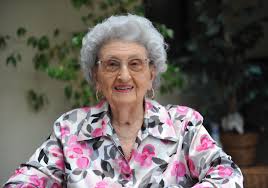Burbank, CA The C4A Conference 2023: Mapping the Future of Aging and Disability in California, held here May 9-11, covered a vast number of topics, some uplifting, and some depressing. The most depressing issue discussed, by far, is the Republican bill passed in April which proposed raising the nation’s debt limit to $31.4 trillion in exchange for massive cuts in spending.
The bill would return the government’s discretionary spending to fiscal 2022 levels in fiscal 2024 and then cap annual spending growth at about 1% over the next decade. With inflation well over 1%, this would translate to draconian budget cuts to many social services programs, with declines in funding as much as 30% to most programs if Social Security and Veterans benefits are left intact.
Somewhere in the middle of uplifting and depressing was a panel on Affordable Housing where Dan McDonald and Michael Siglala discussed an affordable housing project called Magnolia Crossing where they were able to build a facility with 16 units of memory care and 36 which were assisted living. They were studio units, where everyone had their own bathroom and housed anyone from a full-pay to someone on Medi Cal. Unfortunately, they have not been able to replicate the model (which was built a decade ago in 2013). “The Assisted Living Waiver program is great but it’s unpredictable. The reimbursement rates are 10-20% below what they could be to make this feasible,” said Sagala, from Innovative Development and Living Solutions.
There was another panel on Affordable Housing, or rather the lack of it in California, which has resulted in an inordinate number of seniors joining the growing rank of homeless people. It featured Dr. Joshua Bamberger from UCSF Family Community Medicine who left his job during the height of COVID-19 to study 3,500 homeless people who were moved into housing, mostly using tourist hotels. “We can house everyone if we want to. We’ve proven this during the COVID crisis,” he said.
There were also some disturbing panels on Alzheimer’s disease and wandering. I am, unfortunately, very familiar with these topics as both my father and grandmother had Alzheimer’s disease. I have raised over $100K for the Monterey chapter of Alzheimer’s Association and sponsored a number of their annual events through my company Family inHome Caregiving.
In a keynote speech on May 11, Sandy Markwood, the CEO of U.S. Aging, released preliminary data from a 2022 Area Agency on Aging (AAA) survey which found:
80% of AAAs serve individuals with a disability or chronic/serious illness;
49% of AAAs serve consumers with dementia of all ages; and
33% serve veterans under 60.
The survey also noted that 1 in 2 American adults report being lonely and 72% of AAAs are developing specific programs for people living with dementia.
One panel noted that many people who have Alzheimer’s or some type of related dementia are diagnosed with it but their doctor doesn’t tell them. I was shocked to hear Michele Johnston, Program Director for Dementia Initiatives at the California Department of Aging, say that, “Half of the people diagnosed with dementia are never told by their physician.” It is just written down in a note in their charts and/or used as a justification for reimbursement from the insurance company or Medicare. That’s shameful.
Another panel discussed how seniors who are members of minorities like African Americans, Asians, Hispanics, the LGBTQ Community and Native American’s are underserved and what we are doing to change this.
On a more uplifting note, one company did a presentation who actually has a solution for the victims of Alzheimer’s, dementia, autism and other diseases where victims lose their bearings and wander off. The L.A Found Initiative has been rolled out by the Aging and Disabilities Department, a division of Adult Protective Services, using a device provided by the non-profit Project Lifesaver.
The way it works is people receive a wrist band which can be put on their hand or foot and if they wander off, the device will be able to find them within a distance of 3 to 5 miles. Cinthie Lopez Paz, Leader of L.A. Found Initiative noted that 60% of those living with Alzheimer’s disease will wander at some point.
To date, they have a wonderful track record of having 26 successful saves of people who have wandered off. Hopefully, we will have more uplifting stories like this at the 2024 C4A Conference, and the Debt Ceiling will have been raised without draconian cuts to social services.





